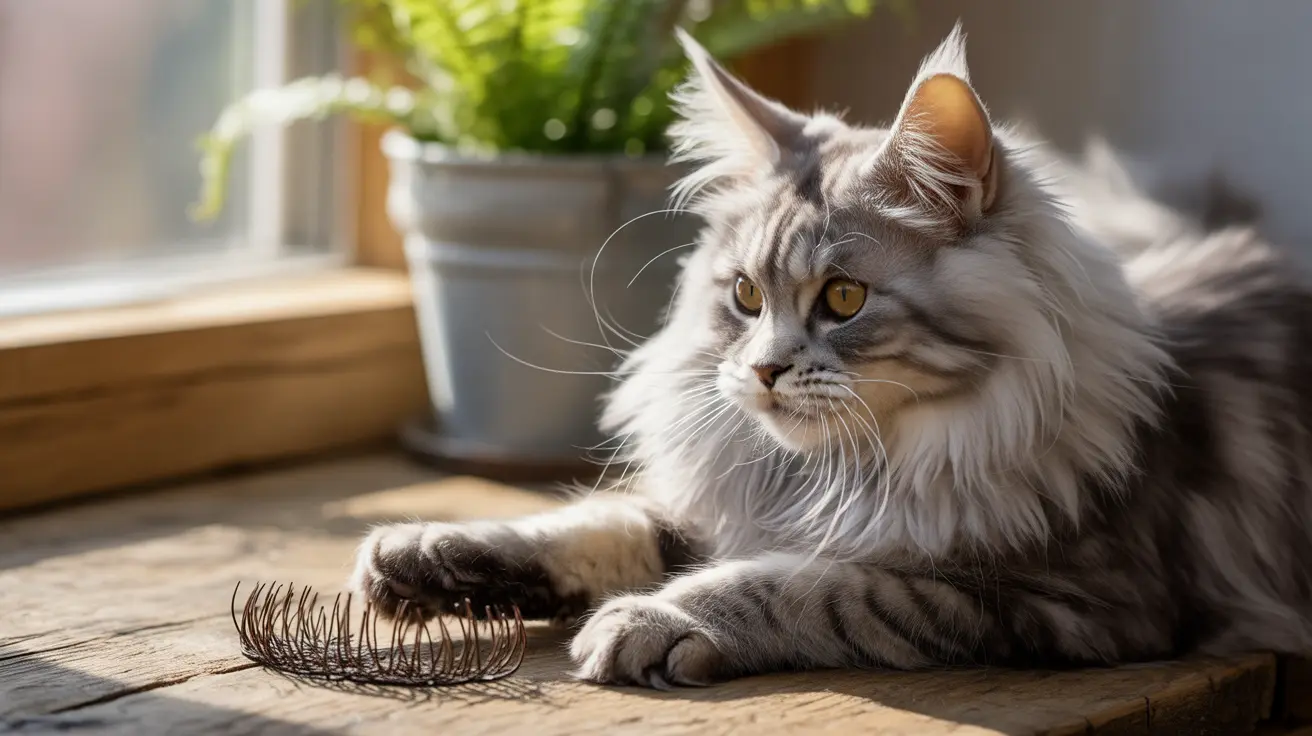If you've noticed your cat's whiskers looking unusually short, you're not alone. These essential sensory tools, known as vibrissae, play a crucial role in your cat's daily life, and changes in their length can signal various underlying issues. Let's explore why cats might have short whiskers and what it means for their well-being.
The Natural Function of Cat Whiskers
Cat whiskers are specialized sensory organs that extend far beyond mere facial decoration. These sophisticated tools help cats navigate their environment, gauge distances, and detect potential threats. Typically, a cat's whiskers should be about as long as their body is wide, allowing them to determine if they can fit through tight spaces.
Common Causes of Short Whiskers
Natural Shedding and Growth Cycles
Like regular fur, whiskers naturally shed and regrow throughout a cat's life. During these cycles, whiskers may appear shorter than usual as new ones grow in. This process is completely normal and shouldn't cause concern unless accompanied by other symptoms.
Environmental Factors
Physical damage from rough surfaces or tight spaces can cause whiskers to break. Cats who frequently squeeze through narrow passages or rub against abrasive materials may experience shortened whiskers due to breakage.
Stress and Behavioral Issues
Cats experiencing anxiety or stress might engage in excessive grooming, which can lead to broken or damaged whiskers. In multi-cat households, roughhousing between cats can also result in whisker damage.
Medical Concerns Related to Short Whiskers
Nutritional Deficiencies
Poor nutrition can affect whisker health and growth. A diet lacking essential proteins, vitamins, and minerals may result in brittle whiskers that break easily or grow shorter than normal.
Skin Conditions
Various skin conditions, including allergies, infections, or parasites, can affect whisker follicles, leading to shorter or damaged whiskers. These conditions often require veterinary attention for proper treatment.
Proper Whisker Care
Never trim your cat's whiskers, as this can disorient them and affect their ability to navigate safely. Instead, focus on providing a healthy environment that protects these sensitive organs. Use wide, shallow food bowls to prevent whisker fatigue, and ensure your cat has plenty of space to move without constantly bumping into things.
When to Consult a Veterinarian
While some variation in whisker length is normal, certain signs warrant professional attention. Contact your vet if you notice:
- Sudden whisker loss
- Inflammation around whisker follicles
- Consistently breaking or brittle whiskers
- Changes in behavior or navigation ability
Frequently Asked Questions
Why are my cat's whiskers unusually short or stubbly?
Short or stubbly whiskers can result from natural shedding, physical damage, or underlying health issues. If the condition persists or is accompanied by other symptoms, consult your veterinarian.
Can stress or overgrooming cause my cat's whiskers to break or fall out?
Yes, stress-induced overgrooming can lead to broken or damaged whiskers. Address the source of stress and consider environmental enrichment to help your cat feel more secure.
Is it harmful to trim or cut a cat's whiskers if they seem too long?
Yes, it's harmful to trim cat whiskers. They're crucial sensory organs that cats need for navigation, balance, and spatial awareness. Never cut or trim your cat's whiskers.
How can I tell if my cat is experiencing whisker fatigue and what should I do?
Signs of whisker fatigue include reluctance to eat from deep bowls, pulling food out to eat elsewhere, or showing stress around feeding time. Use wide, shallow bowls to reduce whisker contact during feeding.
When should I be concerned about my cat's whisker loss and see a vet?
Consult a vet if you notice sudden whisker loss, inflammation around whisker beds, or if short whiskers are accompanied by other symptoms like skin issues or behavioral changes.
Remember, your cat's whiskers are vital tools for their daily life. While some variation in length is normal, maintaining their health through proper care and attention to potential issues will help ensure your cat's comfort and well-being.






